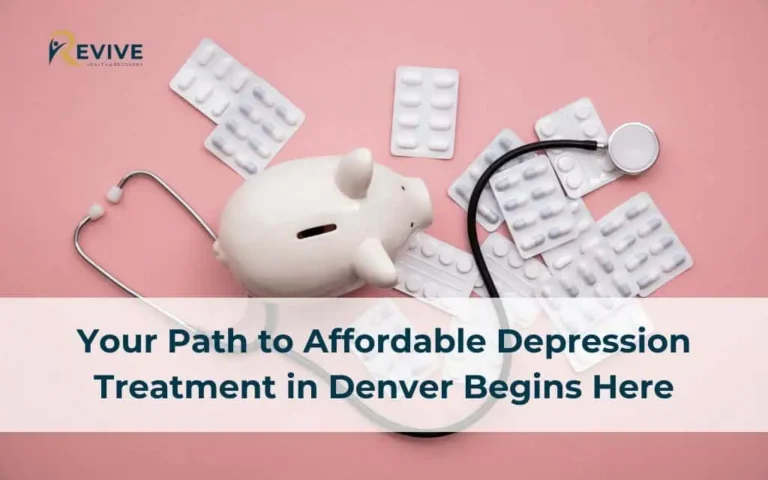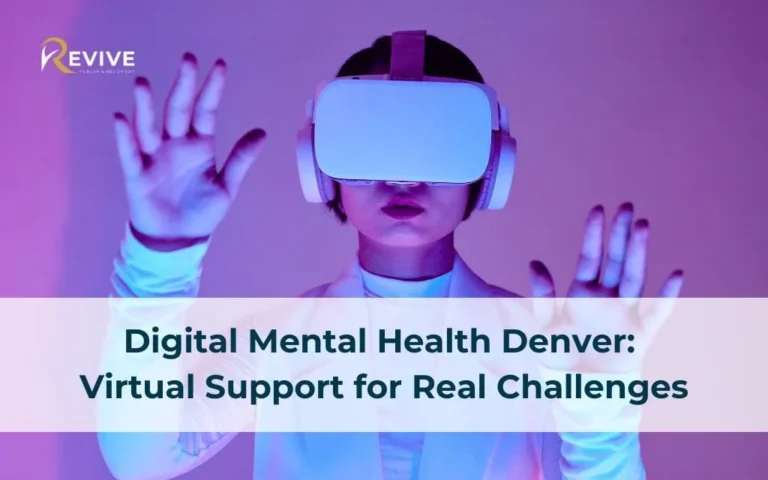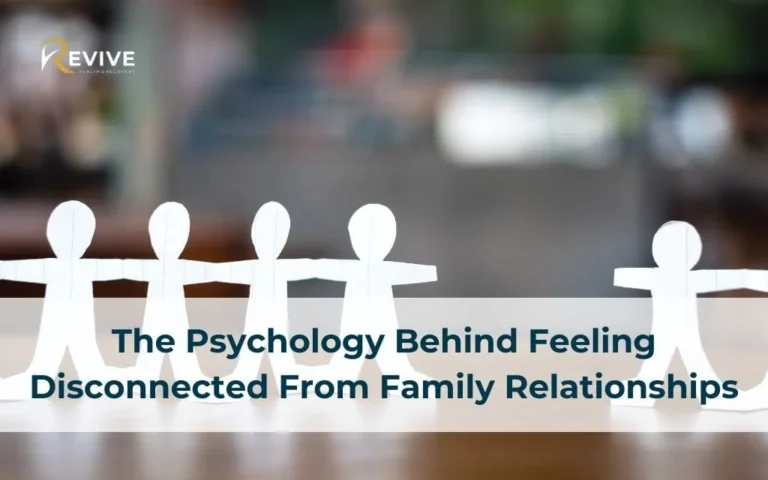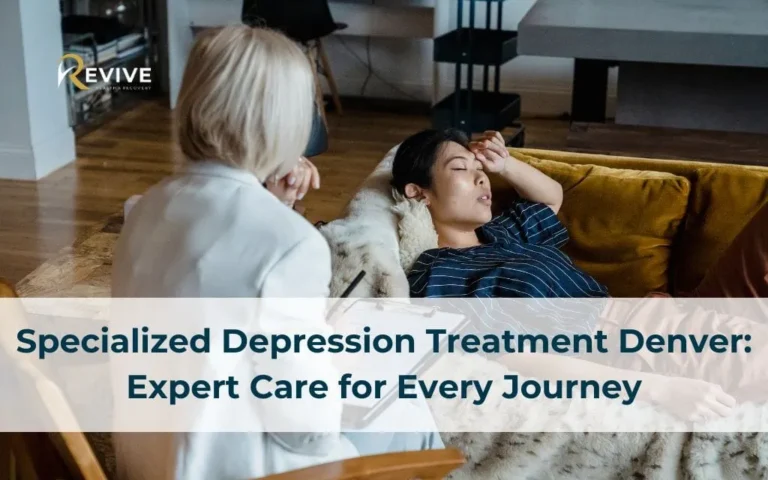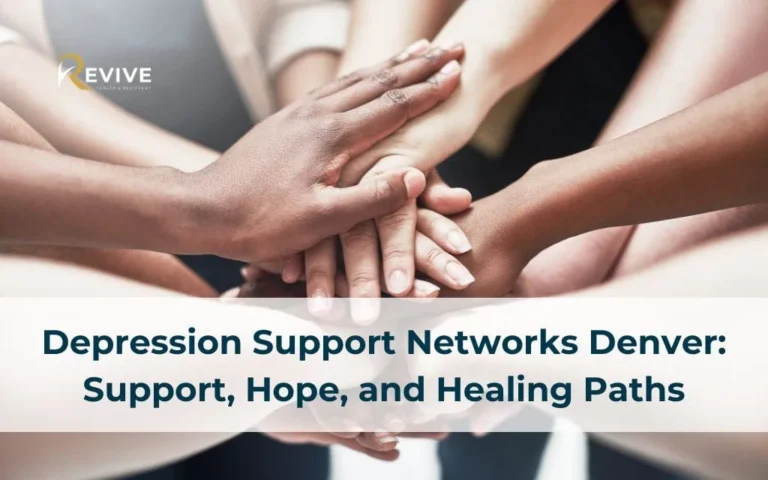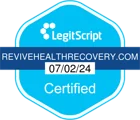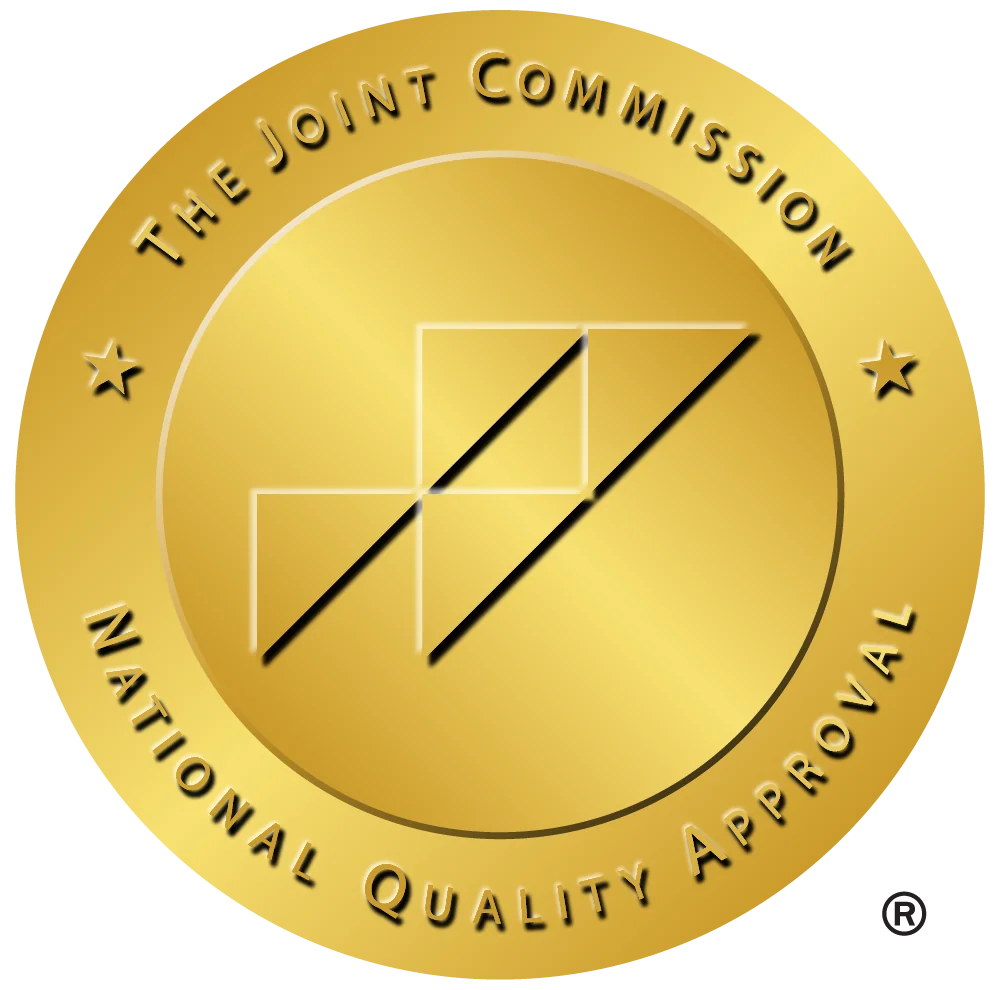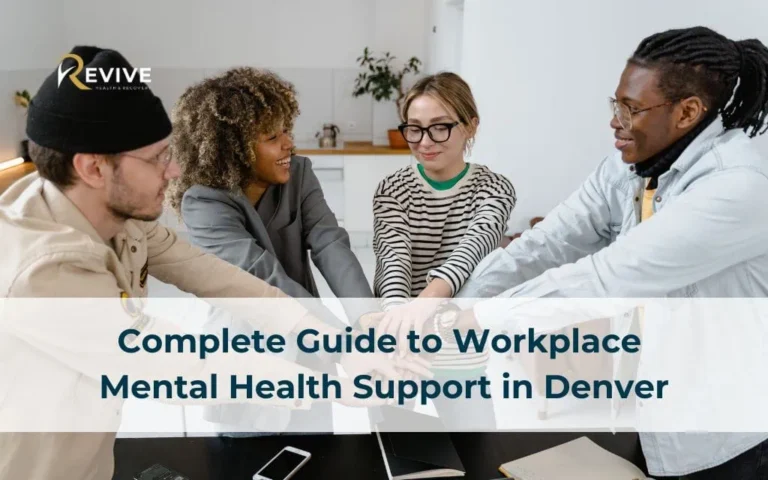
Guide From Depression Treatment to Manage Treatment-Resistant Depression
Taking the first step toward recovery can be challenging for those with depression, often requiring support from family, friends, or healthcare professionals. While there’s no single guaranteed approach to overcoming depression, a wide range of treatments, mental health experts, and supportive services are available. With the right depression treatment, and by taking active steps, individuals can empower themselves on their journey to recovery.
Depression treatment has much more to the method and accompanying effects. Learn more about Depression treatment and explore treatment-resistant depression with Revive Health & Recovery.
What is Depression Treatment
Explain Depression
Depression is a mood disorder that leads to ongoing feelings of sadness and a lack of interest in daily activities. Also known as major depressive disorder or clinical depression, it can impact your thoughts, feelings, and behavior, causing both emotional and physical challenges. Everyday tasks may seem difficult, and life can feel overwhelming.
Depression is more than just feeling down – It’s not something you can ignore – It’s a treatable condition. With the right treatment, such as medication, therapy, or a combination of both, many people find relief and improvement.
If you’re experiencing Depression, You are not alone. We’re here to help you.
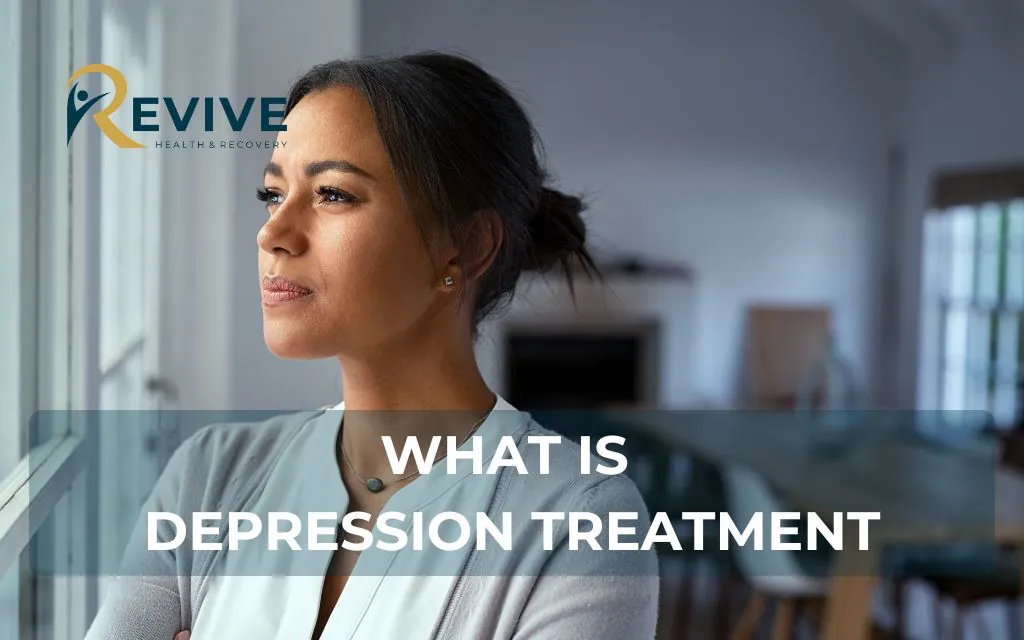
Diagnosis and treatment for depression
Depression is unlikely to resolve on its own, and if untreated, it can persist for months or even years, severely impacting a person’s quality of life.
Finding the right treatment is essential, and it may take time and patience to discover what works best. Treatment varies depending on the type and severity of depression. Mild symptoms might improve with:
- Education about the condition
- Lifestyle adjustments like regular exercise
- Psychological therapy, either in-person or through online platforms
For moderate to severe depression, medical treatments are often necessary alongside these methods.
The first step in treating depression is consulting your doctor. Schedule a longer appointment to discuss symptoms and explore treatment options. Your doctor might ask you to complete a screening questionnaire or run tests to rule out other health issues.
Effective psychological treatments for depression include:
- Behavioral activation
- Cognitive behavioral therapy (CBT)
- Interpersonal psychotherapy
- Problem-solving therapy.
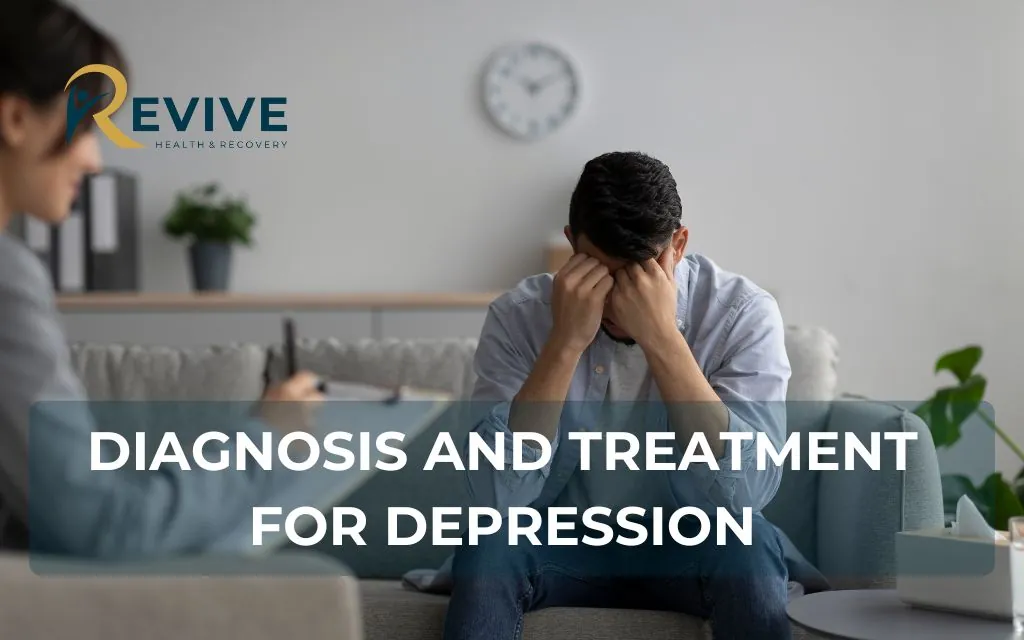
Research shows how can depression treatment affect the brain
Here’s what research shows about two widely used depression treatments:
- Antidepressants: These medications target brain chemicals that regulate stress and emotions. Studies suggest they can help the brain form new connections and reduce inflammation, offering long-term benefits for managing depression.
- Cognitive Behavioral Therapy (CBT): Experts believe CBT promotes neuroplasticity, allowing the brain to rewire itself in ways that alleviate depression. This therapy helps reshape thought patterns, providing a more sustainable approach to managing the condition.
What are the Symptoms & Types of depression
Symptoms of depression
Depression symptoms often recur throughout a person’s life, appearing most days and lasting for extended periods. These symptoms can include:
- Persistent sadness, emptiness, or hopelessness
- Irritability or frustration, even over minor issues
- Loss of interest in usual activities like hobbies, sex, or sports
- Sleep problems, such as insomnia or excessive sleeping
- Fatigue and low energy, making daily tasks seem difficult
- Changes in appetite or weight, either loss or gain
- Anxiety, restlessness, or agitation
- Slowed speech, movement, or thinking
- Feelings of guilt or worthlessness, often focusing on past mistakes
- Trouble concentrating, making decisions, or remembering
- Thoughts of death, suicidal ideation, attempts, or suicide
- Unexplained physical issues, such as headaches or back pain
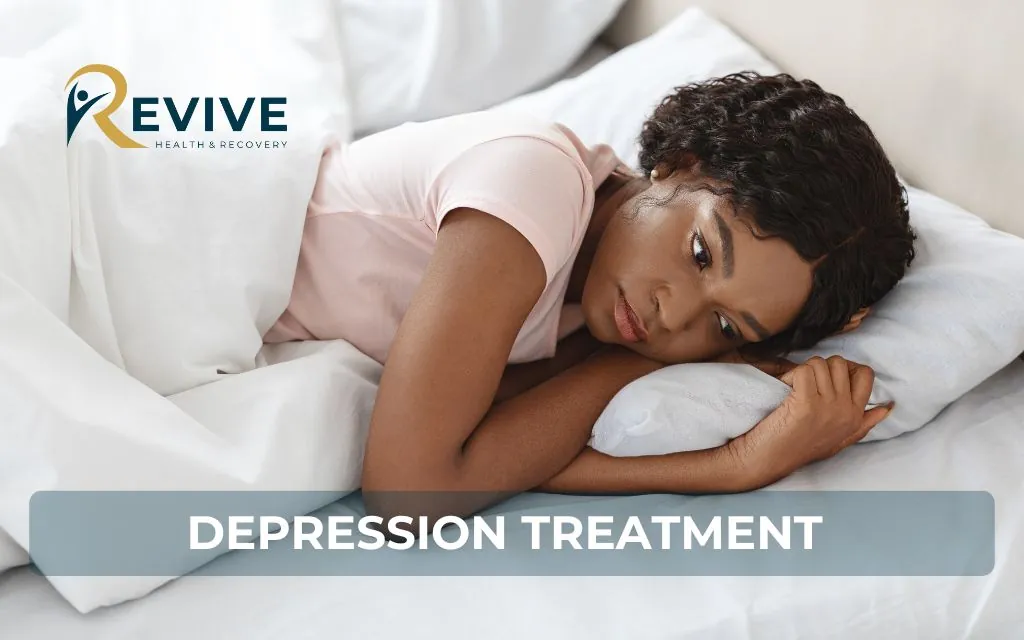
For many, depression symptoms disrupt everyday life, work, school, social interactions, or relationships. Some may feel generally unhappy without knowing the reason.
Understanding Depression Symptoms in Children and Teens
Depression in children and teens can look different by age. In younger kids, it may show as sadness, irritability, clinginess, worries, aches, school refusal, or being underweight. For teens, signs include persistent sadness, irritability, feeling worthless, anger, poor grades, skipping school, drug or alcohol use, oversleeping, self-harm, and social withdrawal.
Understanding Depression Symptoms in Older Adults
Depression is not a normal part of aging but often goes undiagnosed in older adults. Symptoms may include memory issues, unexplained aches, fatigue, sleep problems, loss of appetite, avoiding social activities, and suicidal thoughts, especially in older men.
Types of depression
Symptoms of major depression can differ for each person. To better understand your specific type of depression, your doctor may use one or more “specifiers,” which indicate particular features, such as:
- Anxious distress: Depression with constant restlessness or excessive worry about losing control or future events.
- Mixed features: Depression paired with mania, which includes high self-esteem, excessive talking, and increased energy.
- Melancholic features: Severe depression with no pleasure in activities, early morning waking, worsened mood in the morning, appetite changes, guilt, and sluggishness.
- Atypical features: Depression where mood temporarily lifts with positive events, along with increased appetite, excessive sleeping, sensitivity to rejection, and a heavy sensation in the limbs.
- Psychotic features: Depression with delusions or hallucinations, often involving themes of personal inadequacy.
- Catatonia: Depression with either excessive movement or a rigid, fixed posture.
- Peripartum onset: Depression occurring during pregnancy or shortly after childbirth (postpartum).
- Seasonal pattern: Depression linked to seasonal changes and reduced sunlight exposure.
Other conditions can cause depression-like symptoms
It’s crucial to get an accurate diagnosis for proper treatment. These disorders include:
- Bipolar I and II disorders: Involve mood swings from manic highs to depressive lows, making it challenging to differentiate from depression.
- Cyclothymic disorder: Features milder mood shifts than bipolar disorder, with less intense highs and lows.
- Disruptive mood dysregulation disorder: A condition in children marked by severe irritability and frequent temper outbursts, which may lead to depression or anxiety in later years.
- Persistent depressive disorder (dysthymia): A long-lasting, less severe form of depression that can interfere with daily activities and enjoyment of life.
- Premenstrual dysphoric disorder: Depression symptoms tied to hormonal changes that appear before your period and improve after it starts.
- Other depression disorders: Depression caused by recreational drug use, prescribed medications, or underlying medical conditions.
What are possible treatments for people who are depressed
Medications
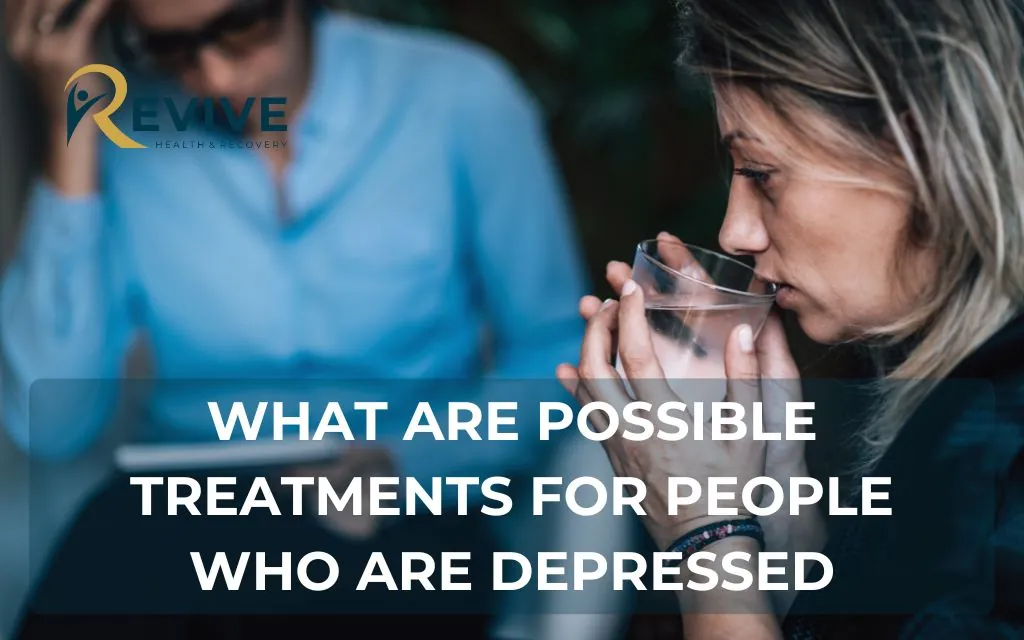
Medication is a major depressive disorder treatment. Depression medications are prescribed to treat moderate to severe depression, often alongside talk therapy. They’re also FDA-approved for conditions like:
- Obsessive-compulsive disorder (OCD)
- Social phobia
- Panic disorder
- Generalized anxiety disorder (GAD)
- Posttraumatic stress disorder (PTSD)
Doctors may also prescribe these medications for off-label uses, such as tricyclic antidepressants for pain, insomnia, or migraines.
Psychotherapy
Psychological treatments help individuals develop new ways of thinking, coping, and interacting with others. These treatments often involve talk therapy, either with professionals or trained lay therapists, and can be done in person or online. Additionally, many resources like self-help manuals, websites, and apps offer access to psychological support.
Effective treatments for depression include:
- Behavioral activation: Encourages positive activities to improve mood.
- Cognitive behavioral therapy (CBT): Helps change negative thought patterns.
- Interpersonal psychotherapy: Focuses on improving relationships.
- Problem-solving therapy: Teaches practical solutions for everyday challenges.
What if you have Treatment-resistant depression
Finding what is Treatment-resistant depression
If you’ve applied depression treatment but haven’t seen improvement, you may be experiencing treatment-resistant depression. For most people, antidepressants or psychological counseling (psychotherapy) can alleviate symptoms. However, in cases of treatment-resistant depression, traditional methods may have little or no effect, or symptoms may improve temporarily only to return later.
If antidepressants prescribed by your primary care doctor aren’t working, consider asking for a referral to a mental health specialist who can provide a more tailored approach to diagnosing and treating your condition.
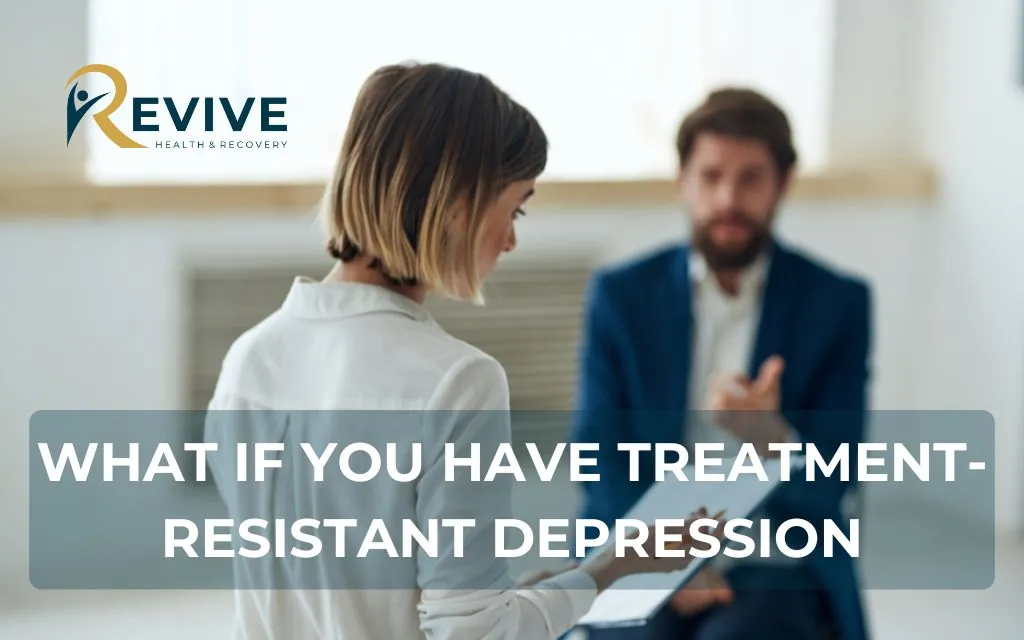
Medication strategies
If you’ve tried an antidepressant without success, don’t give up hope. It may just take time to find the right dose, medication, or combination that works for you. Here are some options that may help if you’re dealing with treatment-resistant depression:
- Allow more time for your current medication to take effect.
- Increase your dosage, if recommended by your doctor.
- Switch to a different antidepressant.
- Add another type of antidepressant to your treatment.
- Incorporate a medication typically used for another condition to boost effectiveness.
Psychological counseling
Psychotherapy for depression can include various techniques, such as:
- Cognitive Behavioral Therapy (CBT): This common therapy targets thoughts, feelings, and behaviors that impact mood. It helps identify and change negative thought patterns while teaching skills for handling life’s challenges positively.
- Acceptance and Commitment Therapy (ACT): A form of CBT, ACT encourages positive actions even in the presence of negative emotions or thoughts, making it especially useful for treatment-resistant depression.
- Interpersonal Psychotherapy (IPT): This therapy focuses on resolving relationship issues that may contribute to depression.
- Family or Marital Therapy: Involves family members or partners to address relational stress that could be impacting your mental health.
- Dialectical Behavioral Therapy (DBT): Teaches acceptance strategies and problem-solving skills, particularly helpful for those experiencing suicidal thoughts or self-harm associated with treatment-resistant depression.
- Group Psychotherapy: Involves a group setting where people with depression work together with a therapist.
- Mindfulness: Encourages non-judgmental awareness and acceptance of thoughts and feelings in the present moment.
- Behavioral Therapy: Helps reduce avoidance and isolation by encouraging engagement in activities that can improve mood or were once enjoyable.
Ketamine Therapy – What It Felt Like
Healthcare providers can use ketamine as an off-label treatment to manage various mental health conditions, including:
- Post-traumatic stress disorder (PTSD)
- Anxiety disorders
- Major depressive disorder
- Obsessive-compulsive disorder (OCD)
Ketamine therapy can be especially helpful for individuals who haven’t responded to traditional treatments, medications, or therapy. It is particularly effective for those dealing with treatment-resistant depression, offering new hope for those who haven’t found relief through other methods.
While keramine is a valuable intervention, it’s important to remember that “treatment” encompasses much more.
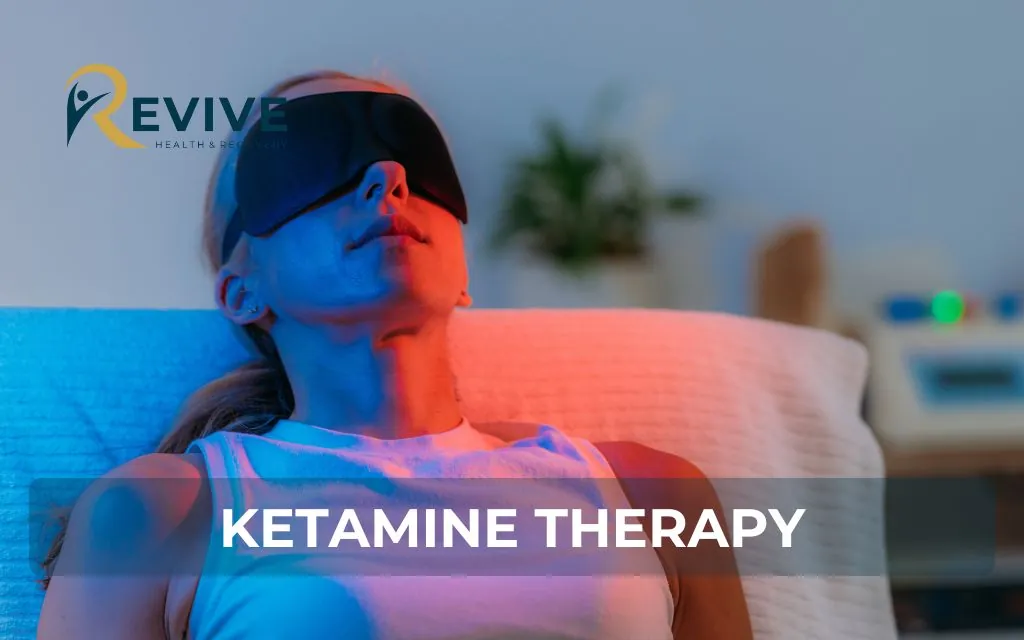
Other steps you can take
Besides the above methods, you also need to take action to get the most out of your depression treatment such as:
- Follow your treatment plan consistently.
- Avoid alcohol and recreational drugs.
- Manage stress effectively.
- Prioritize good sleep.
- Exercise regularly.
Depression treatment APN with Revive Health Recovery
Advanced Practice Nurses (APNs) are highly trained healthcare professionals with advanced degrees who specialize in delivering comprehensive healthcare. When it comes to depression treatment APN, Revive Health Recovery offers expert, holistic care. They are qualified to assess, diagnose, and work on depression treatment using various methods, such as prescribing medication, providing psychotherapy, and recommending lifestyle changes.
Our goal is to create a personalized treatment plan tailored to your unique needs. APNs at Revive Health Recovery combine expertise and compassion to support your journey toward better mental health.
Conclusion
Treating depression requires a personalized and comprehensive approach, from medications and therapy to lifestyle changes. If traditional treatments aren’t working, don’t lose hope – treatment-resistant depression can be managed through alternative therapies, like ketamine, and advanced approaches like Cognitive Behavioral Therapy (CBT).
The key is working closely with healthcare professionals to find the right combination of treatments that work for you. With persistence, support, and the right strategies, it’s possible to reclaim your well-being and lead a fulfilling life.

